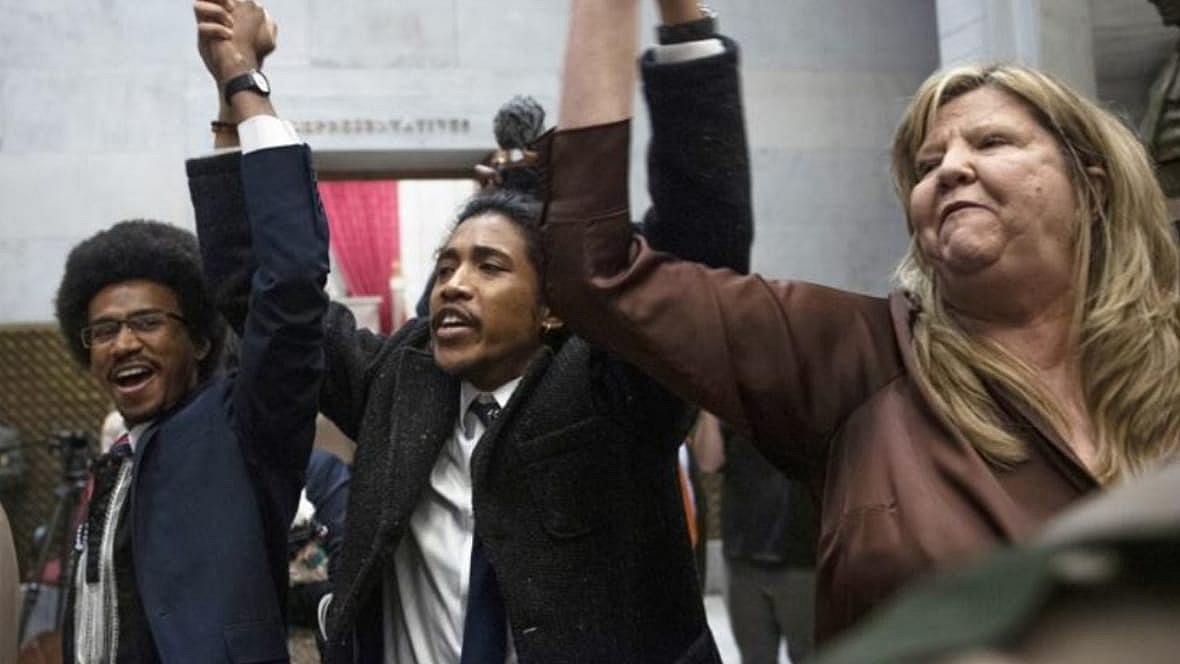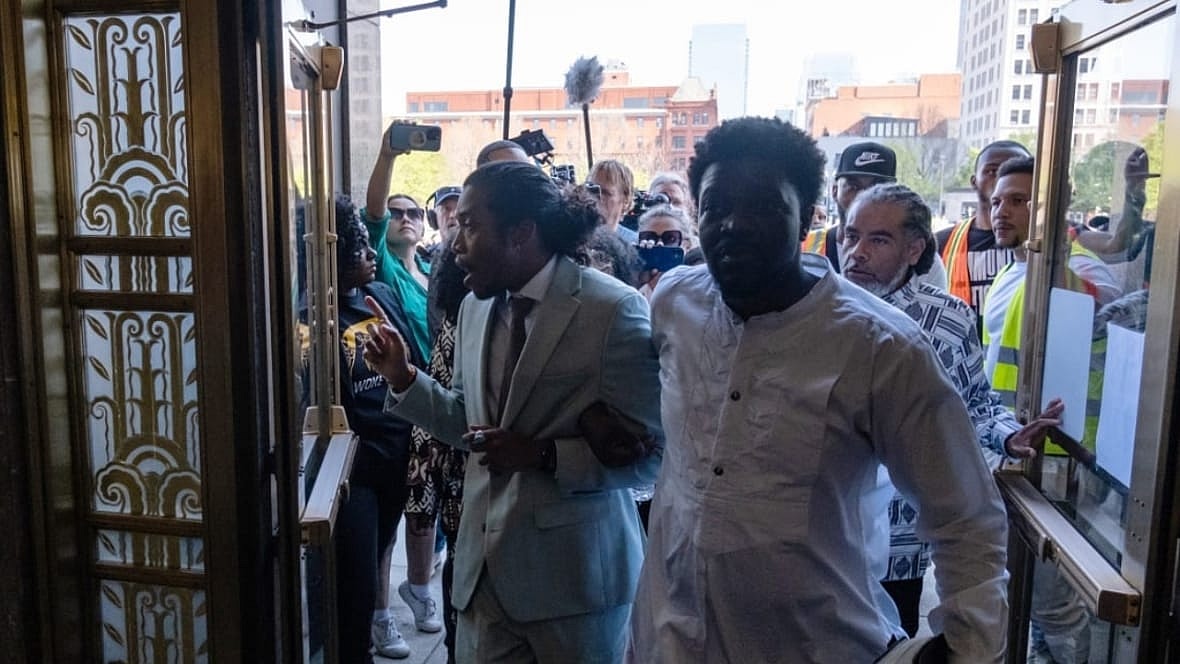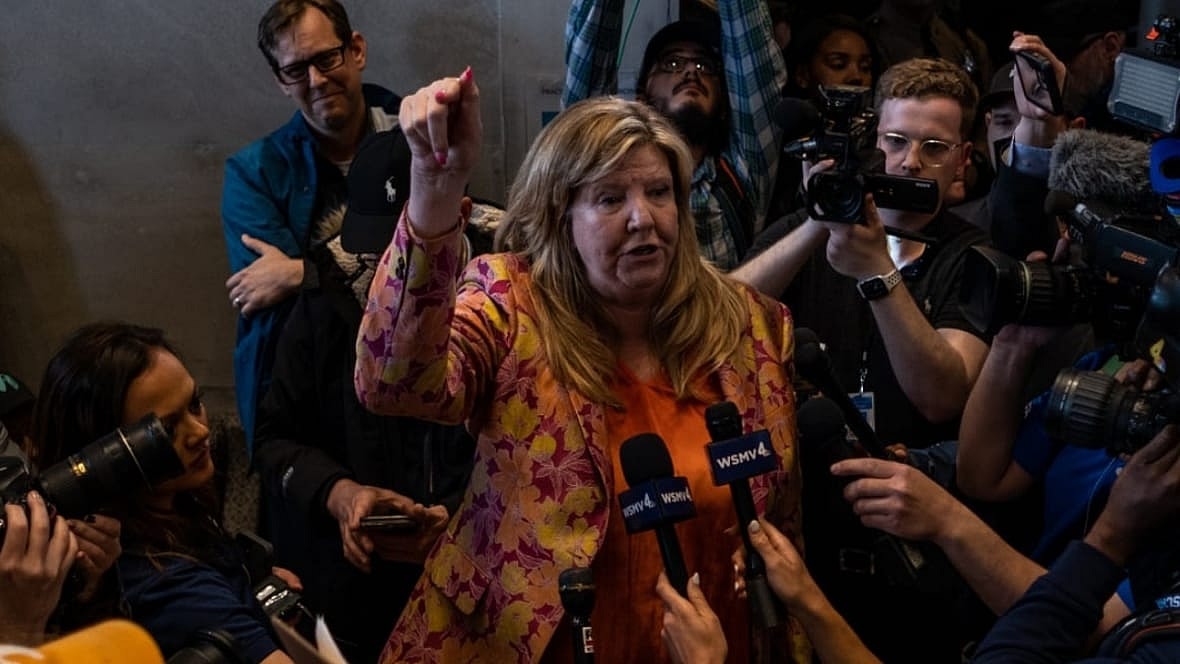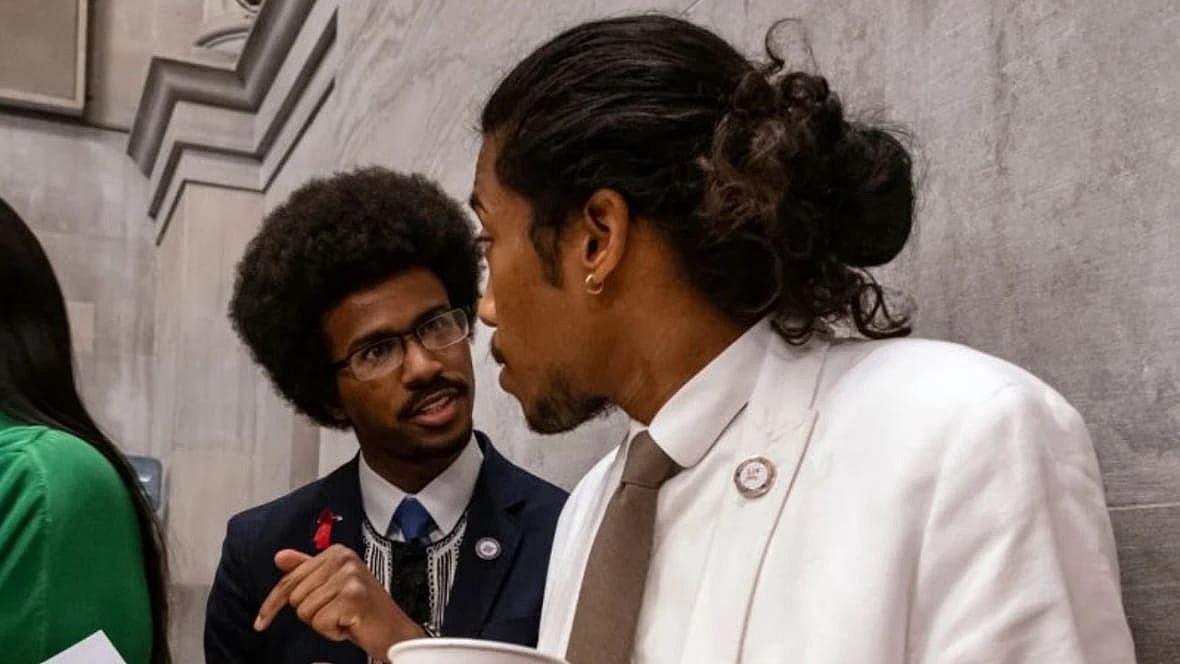All eyes are on Tennessee after two Black lawmakers were expelled from its state House of Representatives, igniting a movement at the intersection of gun violence, racial justice and democracy.
Days after being expelled by the supermajority Republican legislators, state Rep. Justin Jones was unanimously reinstated by the Nashville Metro Council on Monday. On Wednesday, Rep. Justin J. Pearson was also reinstated by the Shelby County Board of Commissioners.

Both Jones and Pearson were ousted by Republicans on April 6 after they, alongside state Rep. Gloria Johnson — who avoided being expelled with her colleagues by just one vote — joined thousands of demonstrators inside the well of the House chamber on March 30 to protest gun violence following the recent deadly mass shooting at The Covenant School in Nashville.
Jones, Pearson and Johnson — now known as the Tennessee Three — were brought up for expulsion on charges of breaking House rules and bringing “disorder” and “dishonor” to the legislative body.
What started as a state-level battle about Tennessee’s gun laws quickly morphed into a national outcry for justice against what many saw as a display of white supremacy and undemocratic posturing by state Republicans. Some also saw Tennessee as a microcosm of an antiquated and broken U.S. political system historically led and abused by white men.
“This has awakened the eyes of people to see how pervasive and steeped white supremacy is in the very fabric of this country and how it’s reflected in every aspect of our government,” said the Rev. Stephen A. Green, an activist who joined the Tennessee Three during a days-long protest of the expulsions.
Green, a friend of Jones’, sees what transpired in Tennessee as a “watershed moment.”
“I think [Republicans] thought that they were going to get away with this,” he continued, “because they get away with these things so often — white supremacy and male chauvinism and them controlling the systems of power [and] the infrastructure of this country.”

The white third of the Tennessee Three told theGrio that the role race played in the expulsions of Jones and Pearson is hard to ignore.
“If you listened during our expulsion hearings, if you listened to the questions that were asked of the two young men, it was a different tone entirely than what was used with me,” recalled Johnson, who represents a majority-Black district in Knoxville.
“The tone to me was demeaning. There was definitely a difference in the questions, like, ‘How dare you speak up or stand up without our permission? You need to act like us and dress like us and speak like us.’”
Johnson said that “systemic racism” is undoubtedly present throughout Tennessee, where teaching about race and racism has been banned in K-12 public schools. She said it also “exists in this legislature.”
The lawmaker recalled a white Republican colleague suggesting a few weeks ago that lynching be brought back as a legal method for implementing the death penalty in the Southern state.

“The folks that actually end up receiving the death penalty are very often Black and brown people, and certainly poor people … if you live anywhere, you know what that means,” said Johnson.
Though the initial cause of the Tennessee Three’s protest had nothing to do with race and everything to do with America’s gun violence epidemic, the targeting of the state House’s youngest Black members brought the attention of millions from the streets of Tennessee all the way to the White House.
Johnson, 60, said Jones and Pearson — both in their 20s — are “critically important” in the state legislature, particularly as Tennessee, like dozens of states across the country, grapples with the issue of gun violence.
“Younger voices aren’t necessarily being heard and lifted up and voices that are in opposition to the MAGA Republican supermajority that we have,” she said. “We need a multiracial, multigenerational representation in this body.”
The thousands of protesters who took to the streets on behalf of Jones and Pearson after their expulsion notably were multiracial throngs, the majority of them young, something Green says is rare in the South.
“This is a form of resistance that is emerging throughout this state,” he said. “People are sort of coming together because of their angst and [the] inaction. I think that this is going to force there to be a pivot and change.”
Tennessee state Rep. Yusuf Hakeem told theGrio that what happened to his Democratic colleagues Jones and Pearson was “clearly indicative of the environment we have to deal with up here on a daily or weekly basis.”
Hakeem echoed Johnson’s contention that young voices are needed in the state legislature.
“They’re helping us refocus on those things necessary,” he said, “when it comes to civil rights, peaceful protest, and not just accepting what is being told to us — our guidelines or rules that keep you in your place — when the needs of the people are not being addressed.”
Svante Myrick, president of People For the American Way, praised the two Black activists-turned-lawmakers now referred to by some as The Justins for handling their expulsions with “righteousness that would impress even the greatest civil rights leaders in American history.”

Myrick, the former mayor of Ithaca, New York, said he sees the Tennessee Three and the aftermath of the experience as “an inflection point.”
“This is a turning point in history because of the youthful, righteous indignation that these young men represent,” he said. “They’re not alone, but they actually are the voice of a generation that’s fighting against a status quo. The Justins kicked off this revolution, and the question is, will we see it through?”
Generations from now, schoolchildren could read about the Tennessee Three and how their protest against gun violence shined a light on intersectional issues related to race and American democracy.
According to Myrick, “if we think we’ll read about this in future history books, we have to ask ourselves what we would want history to say about us at this moment.
“Were we active or passive in the face of this injustice?”
TheGrio is FREE on your TV via Apple TV, Amazon Fire, Roku and Android TV. Also, please download theGrio mobile apps today!

